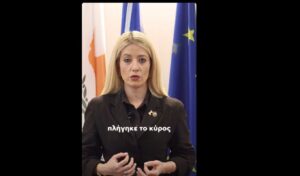The November GPO poll for “PARAPOLITIKA” essentially repeats the October survey findings, with public opinion trends remaining stable across most indicators and the political climate undisturbed, awaiting developments expected from the potential entry of new party formations into the political arena. Let’s examine the key findings for this month in detail: The climate of pessimism and uncertainty remains dominant for more than 3 out of 4 citizens, with 42.8% stating they manage to cover their needs with difficulty, 13.8% unable to meet all their needs, and 6.6% unable to serve even basic needs.
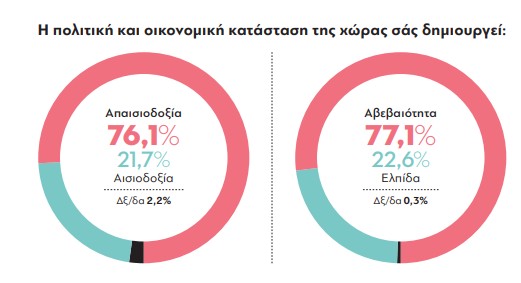
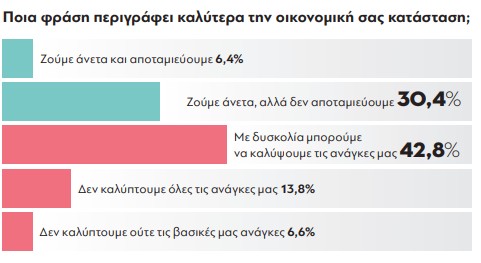
On the opposite side, there is 30.4% who appear to live comfortably but without savings capacity, while at the top of the economic pyramid is 6.4% who live comfortably while saving simultaneously. This specific recording can have different interpretations depending on the perspective one chooses, while the political messages it produces are multifaceted. The numerical interpretation, however, describes a one-third society where 36.8% live comfortably, 42.8% – which we can call the middle class – struggle daily to cover their needs, and 20.4% are in difficult economic situations. It’s clear that everyone’s position on the economic scale significantly affects their party choice.
The positive government performance approval rating remains steady at 28.8%, against 70.8% negative, despite the positive impact of recent agreements for exploratory drilling in the Ionian Sea, which is positively valued by the majority as it’s considered to upgrade the country’s energy role in coming years. The 26.7% who want New Democracy to continue governing after the next elections with K. Mitsotakis as prime minister is a very significant indicator whose evolution we will monitor monthly, as we believe it reflects political correlations to a very important degree.
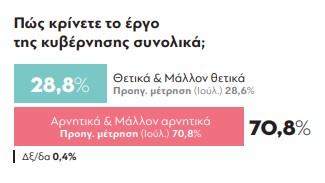
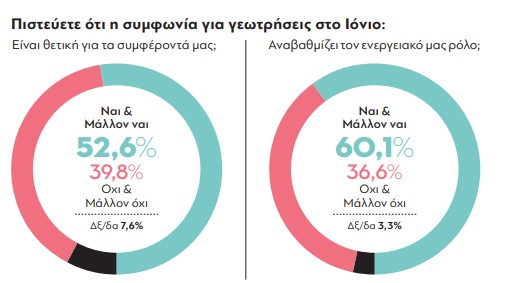
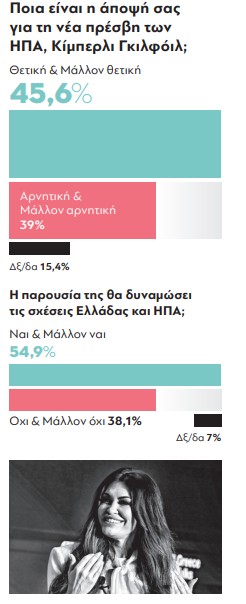
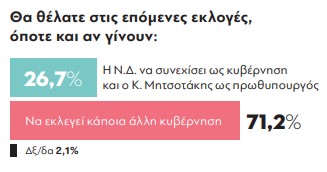
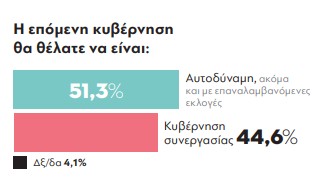
The vast majority, at 71.2%, desires governmental and political change, without yet finding a vehicle that could massively express this demand for change. Currently, PASOK is recorded as the most convincing governmental alternative with 21.4%, though the majority doesn’t seem convinced by anyone, at 34.6%. Regarding the political utility of potential new parties, 26.5% consider establishing a party by Mr. Tsipras beneficial for the country and citizens, 17.4% by Mr. Samaras, while 26.1% consider establishing a party by Ms. Karystianou beneficial. The concept of political benefit has multiple interpretations, but should in no case be equated with the potential electoral influence of these formations.
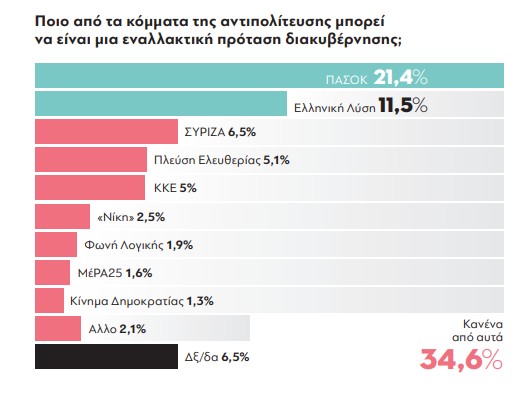
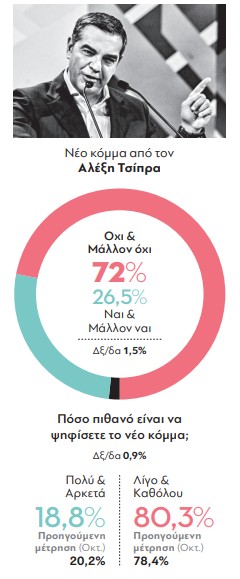
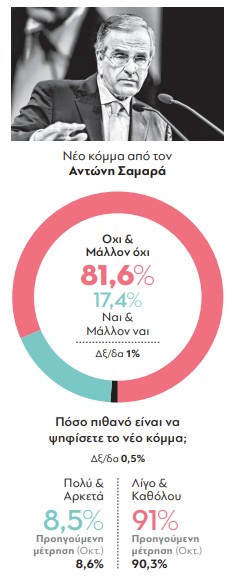
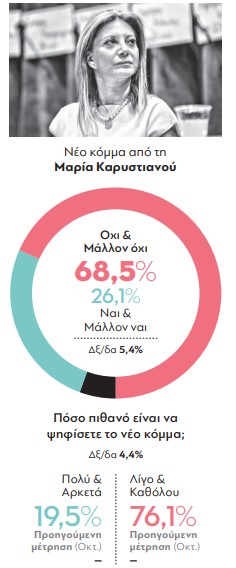
Electoral influence should also not be equated with potential votes, which essentially reveal the reservoirs and limits of parties under formation. Mr. Tsipras is recorded as a very likely choice by 8.3% and quite likely by 10.5%, with corresponding percentages for Mr. Samaras at 2.2% plus 6.3%, while Ms. Karystianou is recorded as a strong possibility for 9.5% with potential votes extending to 10%, totaling approximately 19.5%. Since September, when similar measurements began for potential Tsipras and Samaras parties, their dynamics appear to remain stable without significant fluctuations, while Ms. Karystianou’s case shows declining characteristics recently compared to high initial recordings.
Awaiting political developments, the voting intention table remains almost unchanged, with New Democracy at 24.5%, PASOK at 12.7%, and Greek Solution now established in third place with 10.2%. The Communist Party remains stable at 7.5%, while the declining trajectory continues for Course of Freedom, now detected at 6.5%.






